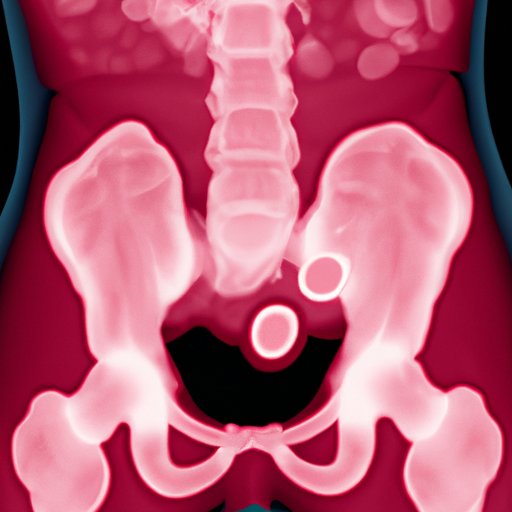
I. Introduction
An enlarged prostate, also known as benign prostatic hyperplasia (BPH), is a common condition in men over the age of 50. This occurs when the prostate gland, which is part of the male reproductive system, grows larger and places pressure on the bladder and urethra, resulting in various symptoms that can significantly impact the quality of life. While an enlarged prostate is not usually a serious condition, it is important to be aware of the symptoms and seek medical attention if necessary.
II. 7 Common Symptoms of Enlarged Prostate You Shouldn’t Ignore
The most common symptoms of an enlarged prostate include:
- Difficulty starting urination
- Weak urine stream
- Increased frequency of urination, especially at night (nocturia)
- Urgency to urinate
- Inability to completely empty the bladder
- Blood in the urine (hematuria)
- Painful urination (dysuria)
Each of these symptoms can cause discomfort and affect a man’s daily life, making it important not to ignore them.
III. How to Tell If Your Prostate is Enlarged: Signs and Symptoms
In addition to the symptoms mentioned above, other signs and symptoms of an enlarged prostate include:
- Feeling a need to push or strain to start urination
- A sudden and strong urge to urinate
- A feeling of incomplete bladder emptying
- Dribbling at the end of urination
- Symptoms of urinary tract infection, such as burning with urination or increased frequency of urination
If you suspect that you may have an enlarged prostate, it’s important to see a doctor who can diagnose the condition and provide proper treatment.
IV. From Frequent Urination to Painful Ejaculation: Understanding Enlarged Prostate Symptoms
Enlarged prostate can cause a range of symptoms that can impact a man’s daily life. Beyond those mentioned above, other symptoms include:
- Decreased force in the stream of urine
- Difficulty starting urination
- The involuntary stopping and starting of urination
- The need to urinate more frequently or urgently
- The need to strain to empty the bladder
- Painful ejaculation
- Stinging or burning during urination
Each of these symptoms can affect physical and psychological health in different ways, making it important to address them as soon as possible. There are various possible causes of these symptoms, including an infection, prostate cancer, or a bladder disorder.
V. Are You at Risk for Enlarged Prostate? Recognizing the Early Warning Signs
While the exact cause of an enlarged prostate is not known, there are common risk factors that increase the chance of developing the condition, including:
- Age: Men over the age of 50 are more likely to develop an enlarged prostate
- Family history: Having a close relative with an enlarged prostate increases the risk
- Ethnicity: African-American men are more likely to develop the condition
- Lifestyle: An inactive lifestyle and poor dietary habits can increase the risk of developing an enlarged prostate
Early warning signs of an enlarged prostate include frequent urination or nocturia, weak urine stream, and the feeling of not being able to empty the bladder. It’s important to monitor your health and discuss any concerns with a healthcare provider to catch and address possible problems early on.
VI. Enlarged Prostate: The Silent Killer You Need to Know About
While an enlarged prostate is not typically life-threatening on its own, it can lead to serious health problems if left untreated, including:
- Urinary retention: The inability to empty the bladder can lead to urinary tract infections, bladder stones, and kidney damage
- Bladder damage: An enlarged prostate can stretch and weaken the bladder muscle over time, causing it to weaken and affect bladder control
- Kidney damage: The increased pressure on the ureters and kidneys can lead to kidney damage and even kidney failure
It’s essential to seek medical attention if you suspect that you may have an enlarged prostate to prevent these severe health issues from arising.
VII. How an Enlarged Prostate Affects Your Urinary System: Symptoms and Solutions
An enlarged prostate can cause complications with the urinary system, including:
- Urinary tract infections
- Bladder stones
- Bladder damage
- Kidney damage
While these complications can be painful and frustrating, there are a few solutions for managing the symptoms. These include medication, catheterization, surgery, and making a few lifestyle changes, such as limiting caffeine and alcohol intake and taking warm baths to reduce urinary symptoms.
VIII. Enlarged Prostate? Here’s Everything You Need to Know- Symptoms, Causes, and Treatment Options
In summary, there are a range of symptoms associated with an enlarged prostate, including weak urine stream, increased frequency of urination, and painful ejaculation. Men over 50, those with a family history of prostate problems, and African American men are at higher risk of developing an enlarged prostate. The condition can be diagnosed by a doctor who will recommend the most effective treatment, including lifestyle changes, medication, and surgery. By being proactive about symptoms and treatment, men with an enlarged prostate can improve their urinary function and overall quality of life.
IX. Conclusion
It’s essential to understand the symptoms of an enlarged prostate, whether you are experiencing them or not. If you suspect that you may have an enlarged prostate, it’s important to see a doctor and take proactive steps to address it early on. Remember that the earlier you address the condition, the better your outcome will be. Take care of your health, and don’t hesitate to seek medical attention if you have any concerns about your prostate.





